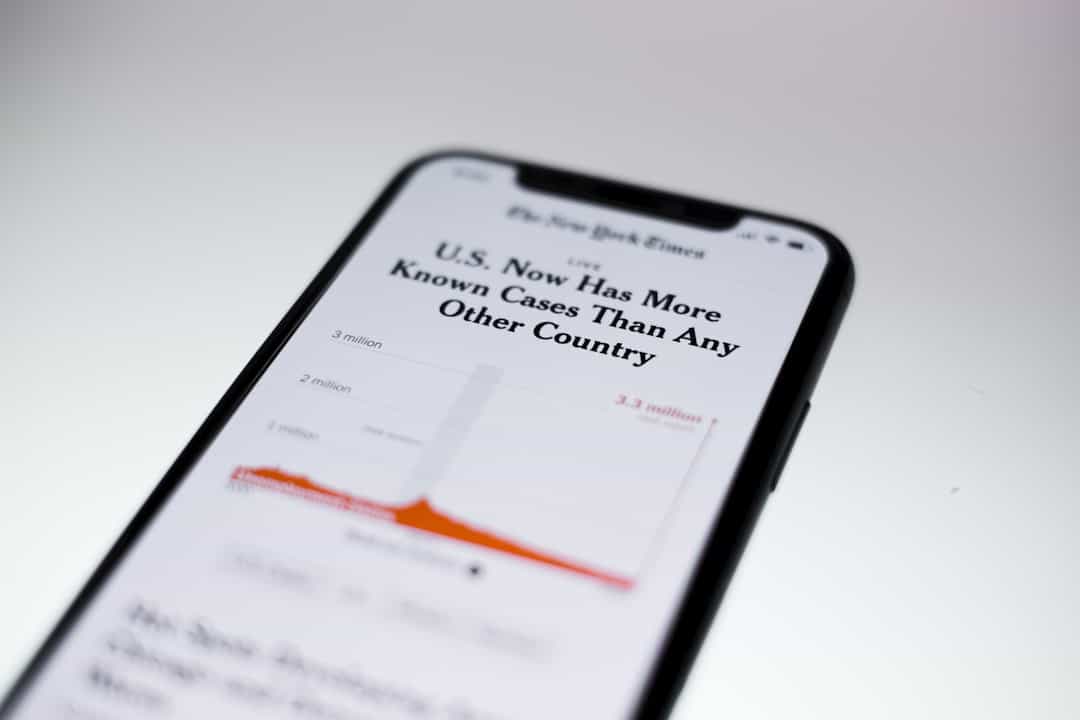In an era where the pace of life seems to accelerate daily, the need for effective time management has never been more critical. The advent of artificial intelligence (AI) has revolutionized various sectors, and time management is no exception. AI-powered applications are designed to assist individuals and organizations in optimizing their schedules, prioritizing tasks, and ultimately enhancing productivity.
These applications leverage sophisticated algorithms and machine learning techniques to analyze user behavior, predict future needs, and provide personalized recommendations. As a result, users can navigate their daily responsibilities with greater efficiency and less stress. The integration of AI into time management tools has transformed traditional methods of planning and organization.
Gone are the days when users relied solely on paper planners or basic digital calendars. Today’s AI-driven applications offer dynamic features that adapt to individual preferences and workflows. They can learn from user interactions, making them increasingly effective over time.
As we delve deeper into the benefits, features, and leading applications in this space, it becomes clear that AI-powered tools are not just a trend; they represent a significant shift in how we approach time management.
Key Takeaways
- AI-powered apps for time management use artificial intelligence to help users organize and optimize their schedules and tasks.
- Benefits of using AI-powered apps for time management include increased productivity, better task prioritization, and personalized recommendations.
- Top AI-powered apps for time management include Trello, Todoist, and Any.do, which offer features such as smart scheduling and task automation.
- Features to look for in AI-powered apps for time management include natural language processing, integration with calendar and email, and predictive analytics.
- User experience and interface of AI-powered apps for time management should be intuitive, customizable, and accessible across devices for seamless usage.
Benefits of Using AI-Powered Apps for Time Management
The advantages of utilizing AI-powered apps for time management are manifold. One of the most significant benefits is the ability to automate routine tasks. For instance, these applications can automatically schedule meetings based on participants’ availability, send reminders for upcoming deadlines, and even suggest optimal times for focused work sessions.
This automation reduces the cognitive load on users, allowing them to concentrate on more critical tasks rather than getting bogged down in administrative details. Moreover, AI-powered apps can provide insights that enhance decision-making. By analyzing past behavior and patterns, these tools can identify when users are most productive and suggest adjustments to their schedules accordingly.
For example, if an app notices that a user tends to complete creative tasks more efficiently in the morning, it can recommend scheduling brainstorming sessions during that time. This level of personalization not only boosts productivity but also fosters a more satisfying work experience as users engage in tasks when they are most capable of performing them effectively.
Top AI-Powered Apps for Time Management

Several AI-powered apps have emerged as leaders in the time management space, each offering unique features tailored to different user needs. One prominent example is Todoist, which combines task management with intelligent scheduling capabilities. Todoist’s AI assistant, named “Karma,” analyzes user habits and provides insights on productivity trends.
It can suggest optimal times for task completion based on historical data, making it easier for users to prioritize their workloads effectively. Another noteworthy application is Clockify, which focuses on time tracking while incorporating AI features to enhance productivity. Clockify’s AI can analyze how much time users spend on various tasks and provide reports that highlight areas for improvement.
This data-driven approach allows users to identify time-wasting activities and adjust their schedules accordingly. Additionally, apps like Trello and Notion have integrated AI functionalities that assist with project management and collaboration, making them invaluable tools for teams looking to streamline their workflows.
Features to Look for in AI-Powered Apps for Time Management
When selecting an AI-powered app for time management, several key features should be considered to ensure it meets individual or organizational needs. First and foremost, a robust task management system is essential. Users should look for apps that allow them to create, categorize, and prioritize tasks easily.
The ability to set deadlines, reminders, and recurring tasks can significantly enhance productivity by keeping users accountable. Another critical feature is the integration of AI-driven analytics. Apps that offer insights into user behavior can help identify patterns and suggest improvements.
For instance, an app that tracks how long tasks take can provide valuable feedback on time allocation and efficiency. Additionally, seamless integration with other tools—such as calendars, email platforms, and project management software—can enhance the overall user experience by creating a cohesive ecosystem for managing time and tasks.
User Experience and Interface of AI-Powered Apps for Time Management
The user experience (UX) and interface design of AI-powered apps play a crucial role in their effectiveness. A well-designed app should be intuitive and easy to navigate, allowing users to access features without unnecessary complexity. For instance, a clean layout with clear icons and straightforward navigation can significantly reduce the learning curve for new users.
The visual presentation of information—such as color-coded tasks or progress bars—can also enhance engagement by providing immediate feedback on productivity levels. Moreover, personalization options can greatly improve user satisfaction. Many leading apps allow users to customize their dashboards or choose themes that resonate with their preferences.
This level of personalization not only makes the app more enjoyable to use but also encourages consistent engagement over time. Additionally, responsive design is essential; whether accessed via desktop or mobile devices, the app should maintain functionality and aesthetics across platforms.
Integration and Compatibility with Other Tools and Platforms

In today’s interconnected digital landscape, the ability of an AI-powered app to integrate seamlessly with other tools is paramount. Users often rely on multiple applications for various aspects of their work or personal lives—ranging from email clients like Gmail to project management platforms like Asana or Slack. An effective time management app should facilitate smooth data exchange between these tools to create a unified workflow.
For example, an app that integrates with Google Calendar can automatically sync scheduled tasks and events, ensuring that users have a comprehensive view of their commitments in one place. Similarly, compatibility with communication tools allows for quick updates and notifications regarding task changes or deadlines. This interconnectedness not only saves time but also minimizes the risk of overlooking important tasks or appointments due to fragmented information across different platforms.
Pricing and Subscription Options for AI-Powered Apps for Time Management
When considering an AI-powered app for time management, pricing structures can vary significantly among different providers. Many applications offer tiered subscription models that cater to various user needs—from individual freelancers to large organizations. Basic versions may be available for free but often come with limited features or functionalities.
For instance, Todoist offers a free version with essential task management features but charges a monthly fee for its Pro version, which includes advanced project tracking and priority support. Similarly, Clockify provides a free tier focused on basic time tracking but offers additional features like reporting and team management under its paid plans.
Users should carefully evaluate their requirements against the pricing options available to ensure they select a plan that provides value without unnecessary expenditure.
Conclusion and Recommendations for AI-Powered Apps for Time Management
As we navigate an increasingly complex world filled with competing demands on our time, AI-powered apps have emerged as indispensable tools for effective time management. Their ability to automate routine tasks, provide personalized insights, and integrate seamlessly with other platforms makes them invaluable assets for individuals and organizations alike. When selecting an app, it is essential to consider factors such as user experience, integration capabilities, and pricing structures to find the best fit for specific needs.
Ultimately, the right AI-powered app can transform how we manage our time—enabling us to work smarter rather than harder while fostering a more balanced approach to our daily responsibilities. Whether you are a busy professional juggling multiple projects or a student striving to optimize study schedules, investing in an AI-driven time management tool could be one of the most impactful decisions you make in your quest for productivity and efficiency.
If you’re interested in technology news and reviews, you should check out the article An Original Home for Technology News and Reviews. This article provides a comprehensive overview of the latest trends and innovations in the tech industry. It’s a great resource for staying up-to-date on all things tech-related, including AI-powered apps for time management like the ones reviewed in the article.
FAQs
What are AI-powered apps for time management?
AI-powered apps for time management are applications that utilize artificial intelligence technology to help users better manage their time, prioritize tasks, and improve productivity. These apps often use machine learning algorithms to analyze user behavior and provide personalized recommendations for time management.
How do AI-powered time management apps work?
AI-powered time management apps work by collecting and analyzing data on the user’s activities, habits, and preferences. They then use this data to provide personalized suggestions for scheduling, task prioritization, and time allocation. Some apps also use natural language processing to understand and interpret user input, making it easier for users to interact with the app.
What features do AI-powered time management apps typically offer?
AI-powered time management apps typically offer features such as smart scheduling, task prioritization, goal setting, time tracking, and personalized recommendations. These apps may also integrate with other productivity tools and platforms, such as calendars, email, and project management software, to provide a comprehensive time management solution.
What are the benefits of using AI-powered time management apps?
The benefits of using AI-powered time management apps include improved productivity, better task prioritization, more efficient use of time, and personalized recommendations for optimizing time management. These apps can also help users identify patterns in their behavior and make data-driven decisions to improve their time management skills.
Are there any drawbacks to using AI-powered time management apps?
Some potential drawbacks of using AI-powered time management apps include concerns about data privacy and security, as these apps often collect and analyze a significant amount of user data. Additionally, some users may find it challenging to trust the recommendations and suggestions provided by AI algorithms, preferring to manage their time independently.

